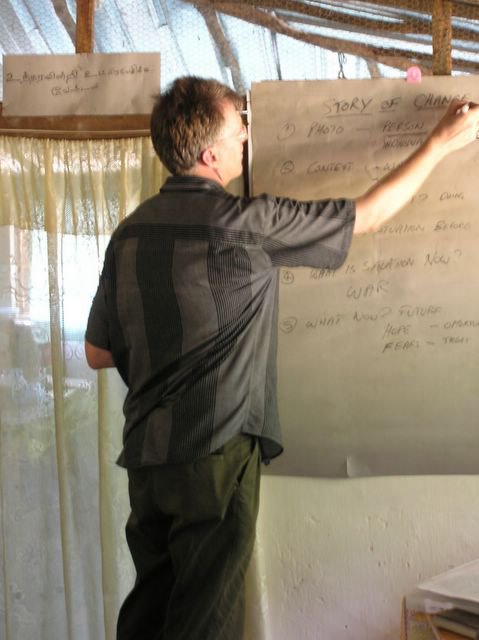
Visit to Madihe East, a small village on the coast about 10 klms from Matara Town.
A group of businessmen formed the Matara Trust, conceived of before the Tsunami but only made a reality after 26th December 2005. Their aim is to respond to the urgent need of the poor and the colossal damage wrought by the Tsunami kicked them into action. Seconded workers from participating businesses in the Trust have worked in Madihe and surrounding communities with the Intermediate Technology Development Group to help rebuild houses in an eco-friendly and affordable way. Wherever The Need, a West Country UK based Trust, has been working with MT and ITDG to build houses for the Tsunami survivors.
Here is the first of 15 houses to be built using the ITDG design. It is 580 square meters internally with a entrance hall/living room, two bedrooms, a kitchen and bathroom. The roof is concrete but with a special sandwich insulation of broken or terracotta roof tiles which acts as a shield from the intense midday heat. In fact as we entered the house after formal handing over of the keys to the new owners the cool air was testament to the success of the design. The flat roof and strong foundation enables the householders to build a further storey when they're own funds permit.










